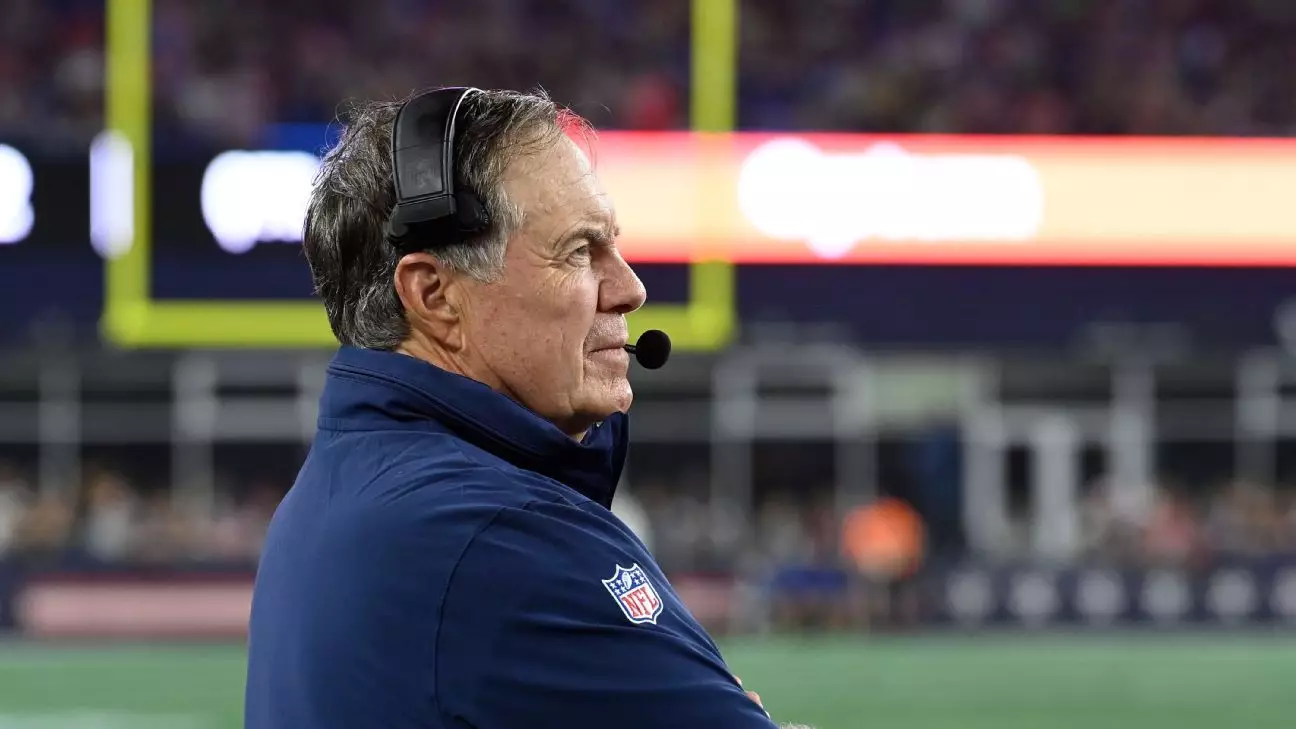The world of college football is in a state of flux, particularly in the wake of North Carolina’s decision to part ways with longtime head coach Mack Brown. Following an underwhelming 6-6 season, the Tar Heels are on the hunt for a new leader to steer their program, making headlines with talk of one of the sport’s most recognizable names—Bill Belichick. Having spent over two decades as head coach of the New England Patriots, where he secured six Super Bowl victories, Belichick’s association with the collegiate game seems unlikely at first glance. However, the intersection of his career ambitions and North Carolina’s coaching vacancy presents an intriguing storyline.
Bill Belichick’s journey through professional football is marked by an astonishing 333 wins—ranking him just behind Don Shula in the NFL’s all-time coaching victories. His pairs of Super Bowl championships with the Patriots, coupled with his contributions to the New York Giants’ defense during their championship years, have solidified his legacy as one of the greatest coaches in football history. But as of now, Belichick finds himself out of the game following a disappointing 2023 season. Having taken a break from the intense pressures of the NFL, he seems to be contemplating a shift to an entirely different arena.
Belichick’s interest in re-entering the coaching realm, particularly at the college level, raises questions. Is it merely the thrill of competition that draws him to UNC, or is there a genuine passion for developing young talent? His father, Steve Belichick, had a substantial career as an assistant coach at the U.S. Naval Academy, possibly creating an inherent affinity for collegiate coaching. Additionally, the college game presents a unique challenge where the coach’s role goes beyond strategy; it involves building mentorships and guiding young athletes through their formative years.
The landscape at North Carolina is ripe for opportunity. With Mack Brown’s exit after a tenure that produced a moderate 44-33 record, the Tar Heels are now seeking a visionary who can elevate their program. Belichick’s extensive experience and success at the highest level of football could provide the kind of leadership UNC has been longing for. However, the task ahead is formidable given his lack of experience in college coaching. Transitioning from the NFL to the collegiate ranks involves not only adapting to a different style of play but also navigating the nuances of NCAA regulations and recruitment.
While Belichick certainly stands out, he is not the sole candidate for the job. Others on the radar include Tulane’s Jon Sumrall, who has gained attention for his coaching prowess, and Iowa State’s Matt Campbell, among others. The range of candidates underscores the diverse paths UNC could take in rebuilding their football program. Additionally, the failed overture to Pittsburgh Steelers offensive coordinator Arthur Smith—also a UNC alumnus—indicates a desire for a home-run hire who can connect with fans and alumni.
As Belichick navigates this pivotal moment, he has taken to media engagements, leveraging platforms like “ManningCast” and “The Pat McAfee Show”. This increased visibility adds another layer to his potential role in college football. The media draws attention not just to Belichick’s rich experiences but also to possibly reigniting excitement for a Tar Heels program hungry for success. His presences on these high-profile platforms suggest an understanding of modern football culture, which is vital for any candidate looking to engage with younger athletes.
As discussions around the UNC head coaching vacancy continue to unfold, the prospect of Bill Belichick transitioning from the NFL to college football ignites imagination and debate among fans and analysts alike. While it might seem counterintuitive for a coach of his stature to dive into college sports, it may also signify a melding of experience and fresh ambitions. Whether or not he takes the plunge, Belichick’s potential involvement will undoubtedly be an ongoing narrative as North Carolina seeks a new beginning. The convergence of his vast football knowledge and the collegiate landscape could yield a captivating chapter not only for him but for college football as a whole.


Leave a Reply